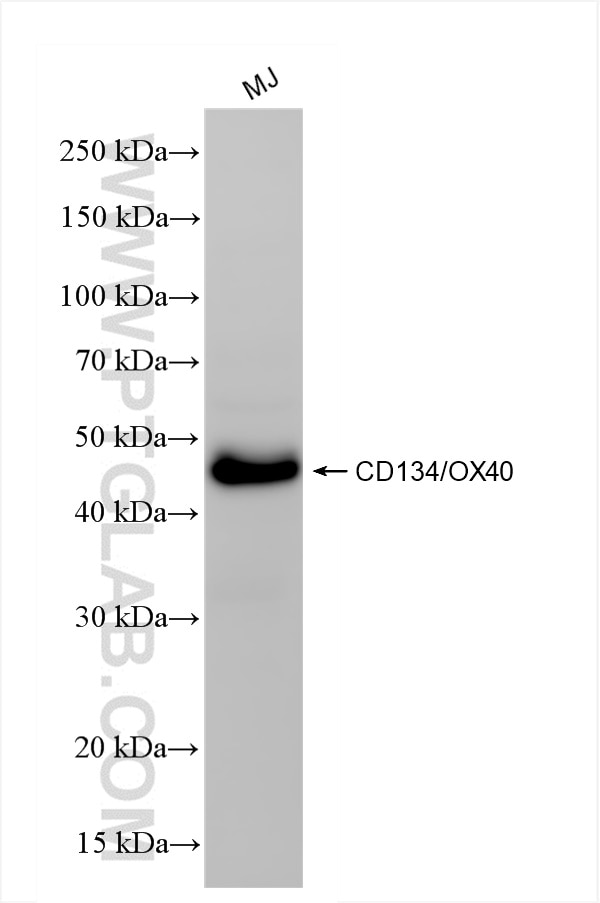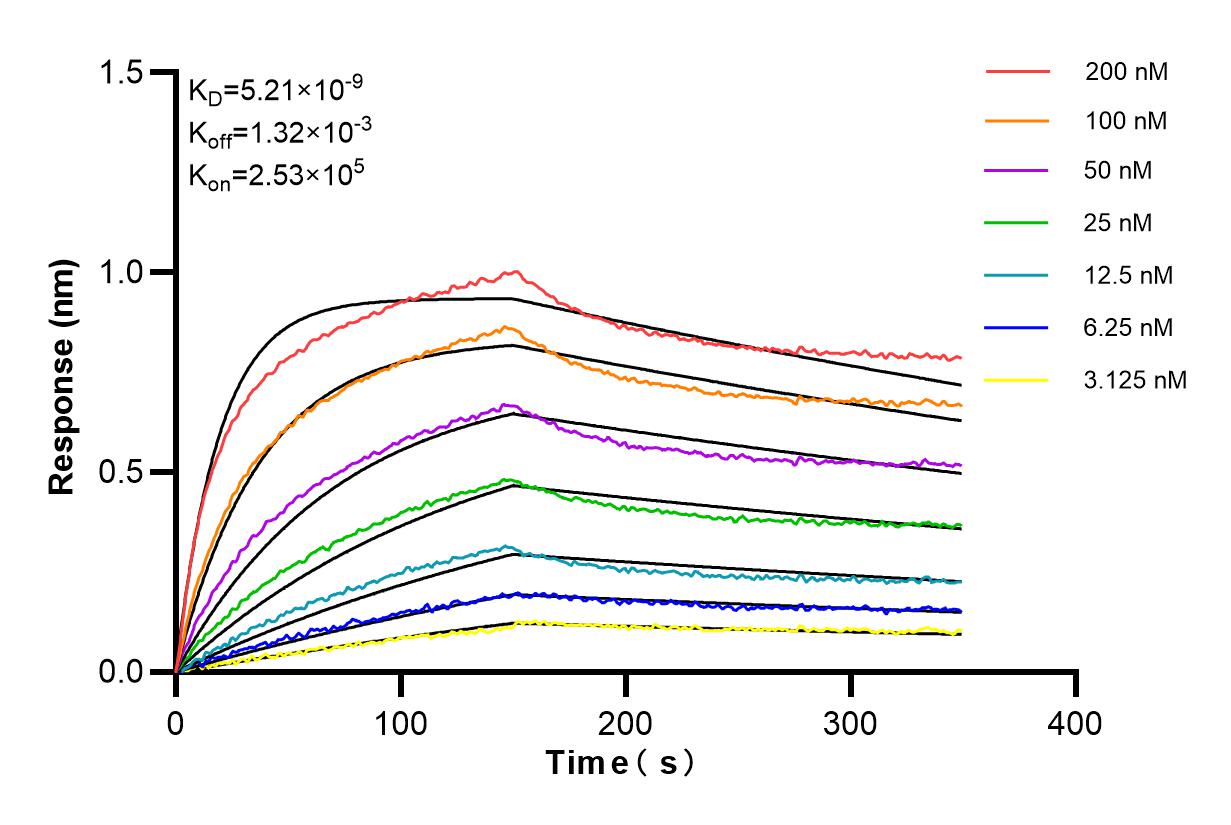Tested Applications
| Positive WB detected in | MJ cells |
Recommended dilution
| Application | Dilution |
|---|---|
| Western Blot (WB) | WB : 1:1000-1:8000 |
| It is recommended that this reagent should be titrated in each testing system to obtain optimal results. | |
| Sample-dependent, Check data in validation data gallery. | |
Product Information
84247-4-RR targets CD134/OX40 in WB, ELISA applications and shows reactivity with human samples.
| Tested Reactivity | human |
| Host / Isotype | Rabbit / IgG |
| Class | Recombinant |
| Type | Antibody |
| Immunogen |
Fusion Protein Predict reactive species |
| Full Name | tumor necrosis factor receptor superfamily, member 4 |
| Calculated Molecular Weight | 29 kDa |
| Observed Molecular Weight | 45-50 kDa |
| GenBank Accession Number | NM_003327 |
| Gene Symbol | CD134 |
| Gene ID (NCBI) | 7293 |
| RRID | AB_3671797 |
| Conjugate | Unconjugated |
| Form | Liquid |
| Purification Method | Protein A purfication |
| UNIPROT ID | P43489 |
| Storage Buffer | PBS with 0.02% sodium azide and 50% glycerol, pH 7.3. |
| Storage Conditions | Store at -20°C. Stable for one year after shipment. Aliquoting is unnecessary for -20oC storage. 20ul sizes contain 0.1% BSA. |
Background Information
CD134 (OX40) is a member of the TNFR-superfamily of receptors. Predominantly expressed on activated T cells, CD134 is activated by its cognate ligand CD134L (OX40L) and functions as a T cell co-stimulatory molecule. CD134-CD134L interactions have been proposed as a potential therapeutic target for treating autoimmunity (PMID: 26215166). CD134 can interact with TRAF2, TRAF3, and TRAF5.
Protocols
| Product Specific Protocols | |
|---|---|
| WB protocol for CD134/OX40 antibody 84247-4-RR | Download protocol |
| Standard Protocols | |
|---|---|
| Click here to view our Standard Protocols |






